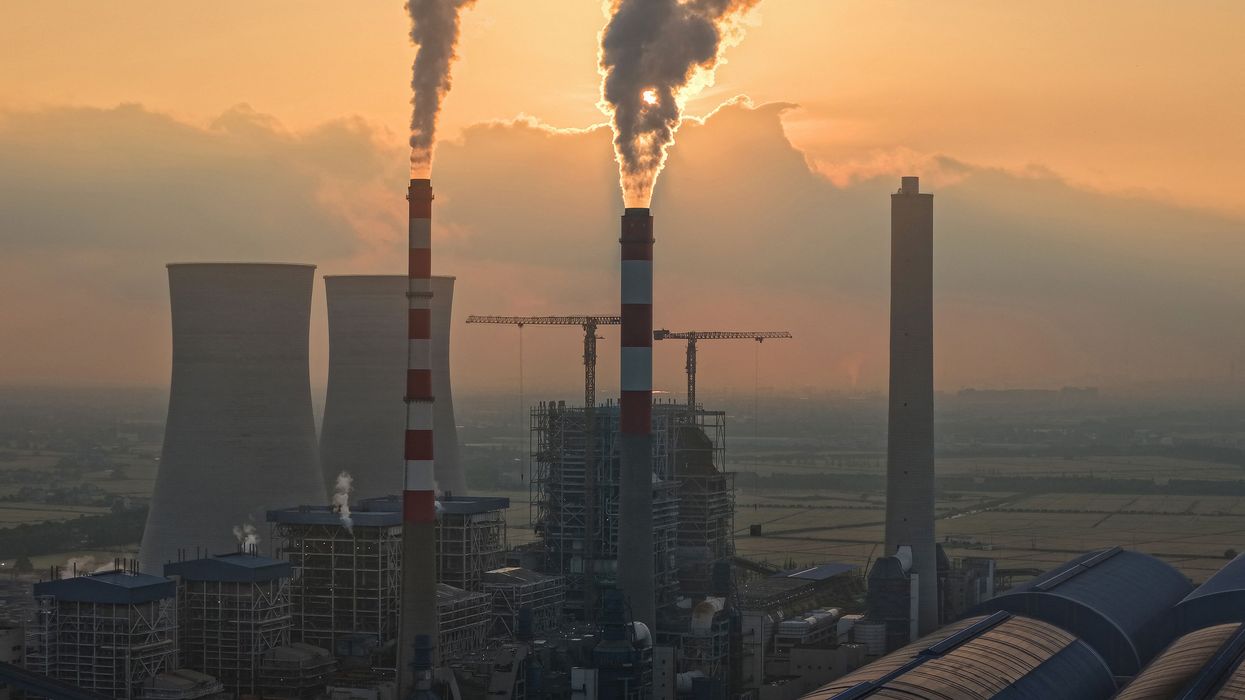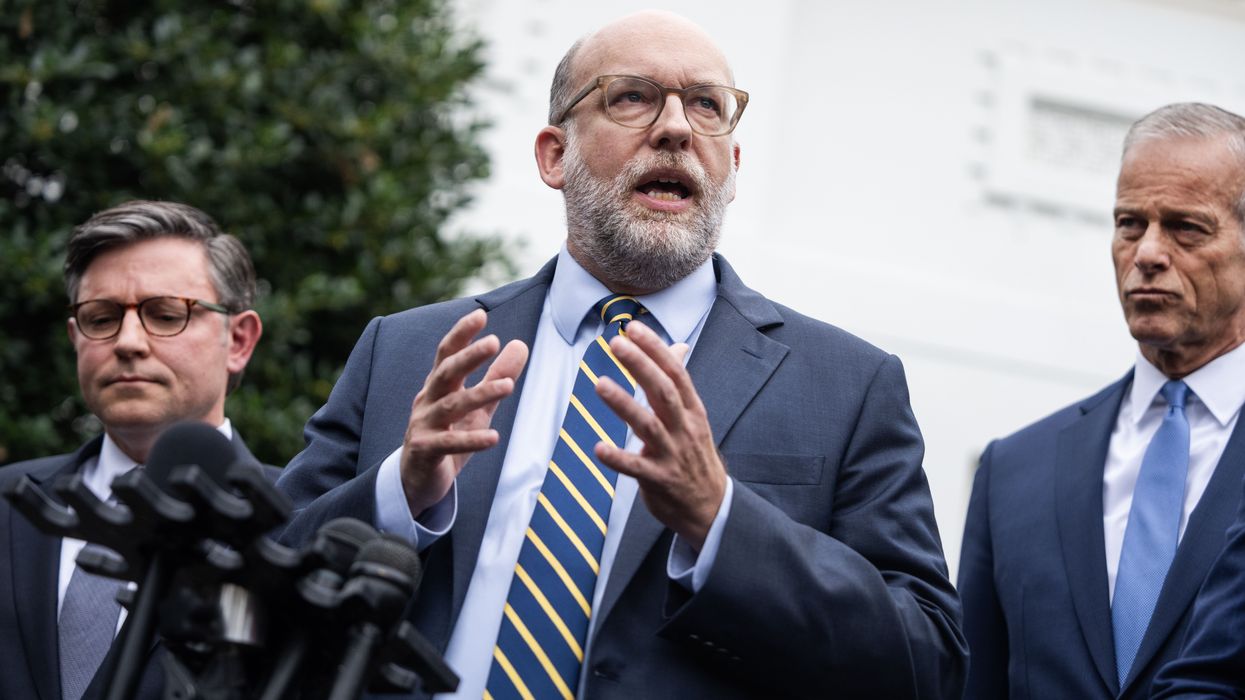Now that the Kabuki dance is finally over and the financial reform bill is moving to the Senate floor, attention can be turned to the real issue: Will the new rules rein in Wall Street? The key issue is not whether the financial regulatory bill is going to pass but whether it will be strengthened.
The Senate banking committee bill contains a wide range of important reforms that should be enacted quickly, but the bill also must be strengthened considerably to establish a framework to prevent a recurrence of the financial crisis.
Here are five priorities as the debate goes forward:
1. Break Up the Banks
The largest banks are now larger - considerably larger - than they were before the financial crisis. Despite politicians' protests to the contrary, the market believes the biggest banks are "too big to fail" - which gives them unfair power in the marketplace and an advantage over smaller competitors and an incentive to engage in risky behavior. Their giant size gives them far too much political power and is incompatible with democracy.
The Senate bill, like the House bill, does nothing of consequence to shrink the mega-financial institutions. Sens. Sherrod Brown (D-Ohio) and Ted Kaufman (D-Del.) will introduce an amendment to require banks exceeding a certain threshold to reduce their size. The amendment should be adopted.
The Senate bill does contain a version of the "Volcker Rule," named for its initial advocate, former Federal Reserve Chair Paul Volcker, which would establish that banks cannot undertake "proprietary trading" - basically using their own resources to gamble in the stock, bond and over-the-counter markets. This needs to be strengthened, as Sen. Jeff Merkley (D-Ore.) and others will propose. A strong rule would require the banks to scale back and likely lead to them spinning off their hedge fund-like divisions.
2. Create a Strong, Independent Consumer Financial Protection Agency
In the years leading up to the financial crash, regulators ignored calls to protect consumers from predatory loans and other financial rip-offs. A vigorous stand-alone consumer protection agency not only would have saved billions and billions of dollars for millions and millions of consumers, it would have helped protect the financial industry from its worst excesses. Those rip-off loans ended up imploding the banks and Wall Street.
The Senate bill contains a reasonably strong consumer agency but houses it at the Federal Reserve, which was one of the agencies most hostile to consumer interests during the run-up to the crash. The Senate bill doesn't give the Fed operational control, but embedding the agency in the Fed is asking for trouble. The agency should be made independent. Nor should its rules be subject to veto by other bank regulators, as is the case in the current Senate bill. Senators also should ensure that the bill does not block states from protecting their own consumers. A bill that is supposed to strengthen consumer protection is no place to weaken state consumer protection laws and state enforcement. Finally, various creditor interests - auto dealers, pawn shops, payday lenders - are going to be lobby to be exempt from the consumer agency's jurisdiction; it is crucial that these most predatory of lenders fall under the new agency's authority.
3. Clamp Down on Out-of-Control Pay
Wall Street is paying itself something like $145 billion in bonuses and compensation for 2009 performance - the same year in which the financial sector was saved from ruin with trillions of dollars of public supports.
The congressional financial reform bills do nothing about this outrage other than to give shareholders authority to hold an advisory vote on top executive pay. (And Wall Street is up in arms about this trivial infringement on its pay prerogatives.)
We need a windfall tax applied on the bonuses paid in 2009 and likely for 2010. We need to eliminate the outrageous "carried interest" rule that enables hedge fund managers - many of whom pulled in more than $1 billion in compensation last year - to pay income tax at less than half the standard rate. And, we need rules that insist bonus pay reflect long-term performance, not just the results of short-term speculative bets. The Wall Street bonus culture provides incentives for traders and executives to take risky bets and inflate bubbles - they benefit massively from the upside, but don't pay when bubbles burst.
4. End the Casino Economy
Wall Street and the financial sector are far too big relative to the real economy. There is a legitimate role for Wall Street firms in helping allocate capital for productive uses. And people, businesses and communities need banking services. But there is no social benefit from the financial sector's speculative frenzy - and it is that speculative impulse that destroyed the national and global economies.
A small tax on financial speculation - .25 percent on a stock trade and equivalent amounts on bonds and exotic financial instruments - could raise $100 billion a year, with the costs overwhelmingly borne by the rich. A speculation tax would curb the churning on Wall Street, discouraging highly leveraged trades that aim to capitalize on small up or down ticks in share values over very short periods of time.
Additionally, derivatives trading must be brought under control. Many derivatives should be banned outright, and there is some hope for winning a ban on some categories. But the main issue at stake in derivatives regulation is whether derivatives trading must be done in the open, on regulated exchanges. Right now, most financial derivatives are handled as private contracts between parties. That opens the possibility of cheating by insiders - since prices are not transparent. It means that parties are not required to maintain sufficient collateral against the risk of payout (the problem highlighted by AIG). And it prevents regulators from having any sense of what is going on in the market - precluding them from recognizing emerging risks.
The Lincoln-Dodd derivatives amendment suggests that outrage with Goldman Sachs and Wall Street in general may lead to some meaningful derivatives regulation.
5. Prevent Global Deregulation
Under Timothy Geithner's stewardship during the Clinton administration, the United States entered into a deregulatory financial services agreement at the World Trade Organization (WTO). New deregulatory proposals are still being floated at the WTO.
The idea that financial regulatory legislation would subordinate new regulatory efforts to the WTO deregulatory rules boggles the mind. A provision in the Senate bill related to insurance regulation would do just that, however. It must be scrapped.



